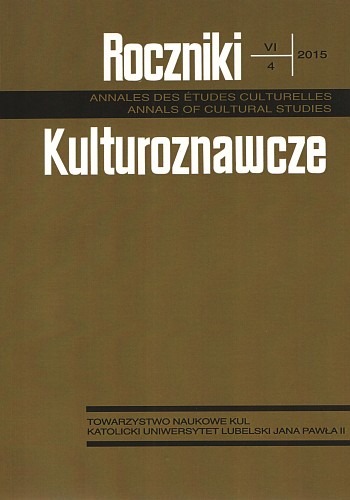„Prawo naturalne rzeczowe” a „prawo naturalne ludzkie” – nowy humanizm i granice naturalizmu w badaniu kultury
“The Law for Man” and “the Law for Thing”: New Humanism and the Limits of Naturalism in Cultural Studies
Author(s): Paweł CieślarekSubject(s): Culture and social structure
Published by: Towarzystwo Naukowe KUL & Katolicki Uniwersytet Lubelski Jana Pawła II
Keywords: Babbitt Irving;humanism;humanities;More Paul Elmer;naturalism;new humanism;
Summary/Abstract: Irving Babbitt (1865-1933) defended a view of humanities supported by a method that would match the expectations of modern man enchanted by the practical consequences of science and technology without negating the basic truth of the dualism of human nature. Man as a biological phenomenon is governed by the outer law of constant change, relativity, and expansion. But what is distinctively human, to be recognized and moved by an act of will, must turn to a different law – the human law of concentration, selection and measure. Only by obeying it, one can regain his self-knowledge and self-control. This neglected domain of human existence should – according to Babbitt – form a suitable point of departure in the task of attaining a truly modern view of humanities.The article confronts the views preached by the supporters of the digital humanities with the prospects offered by Babbitt’s “new humanism” to form an argument in the ongoing quarry over the future of the humanities.
Journal: Roczniki Kulturoznawcze
- Issue Year: 6/2015
- Issue No: 4
- Page Range: 141-157
- Page Count: 17
- Language: Polish

